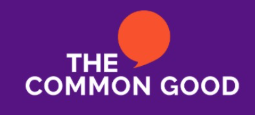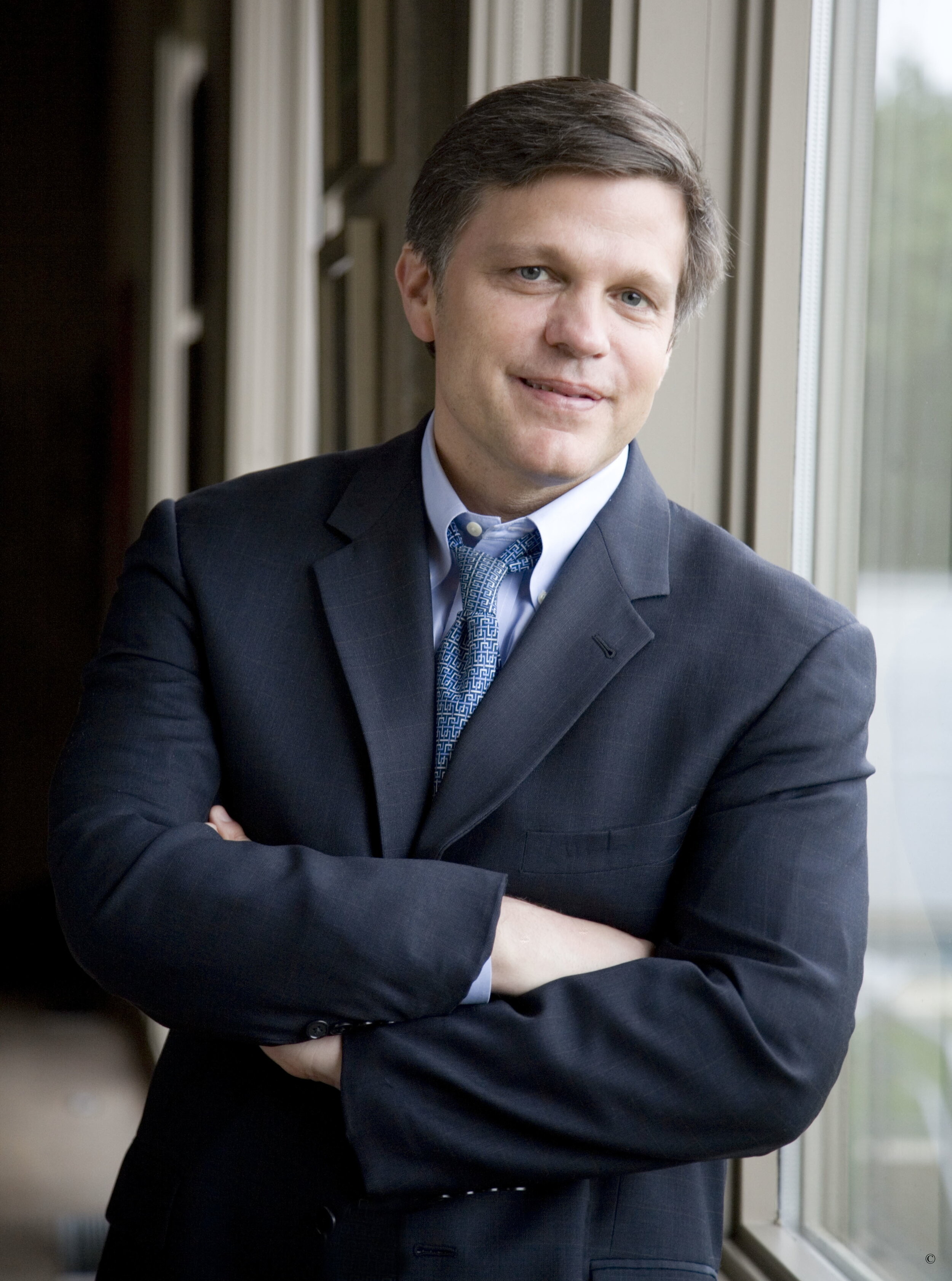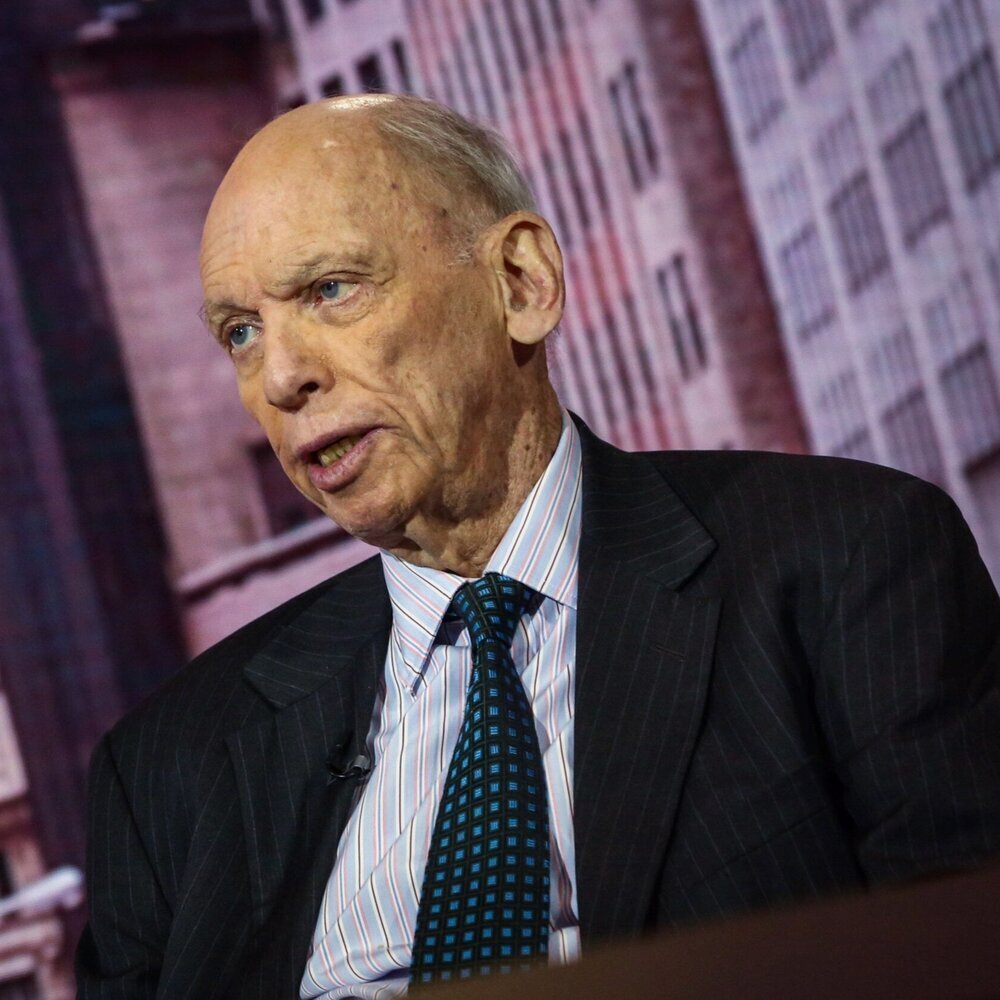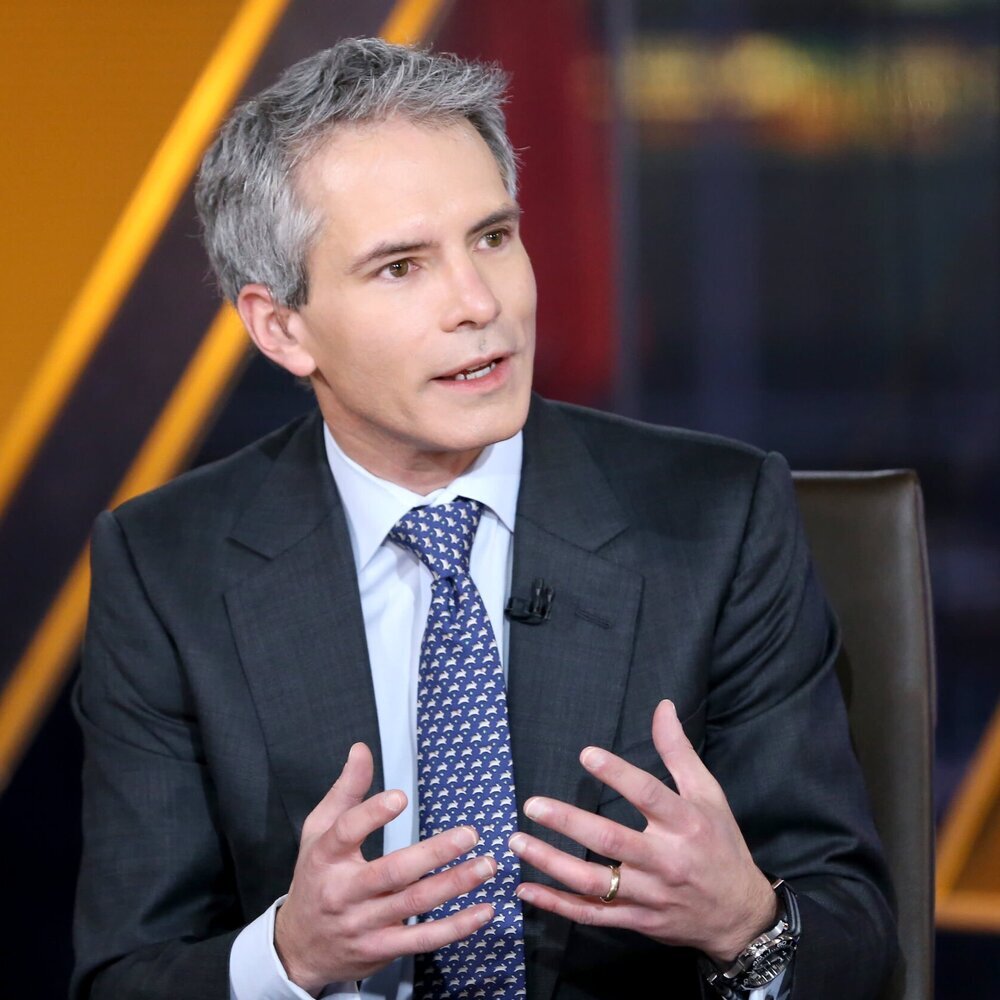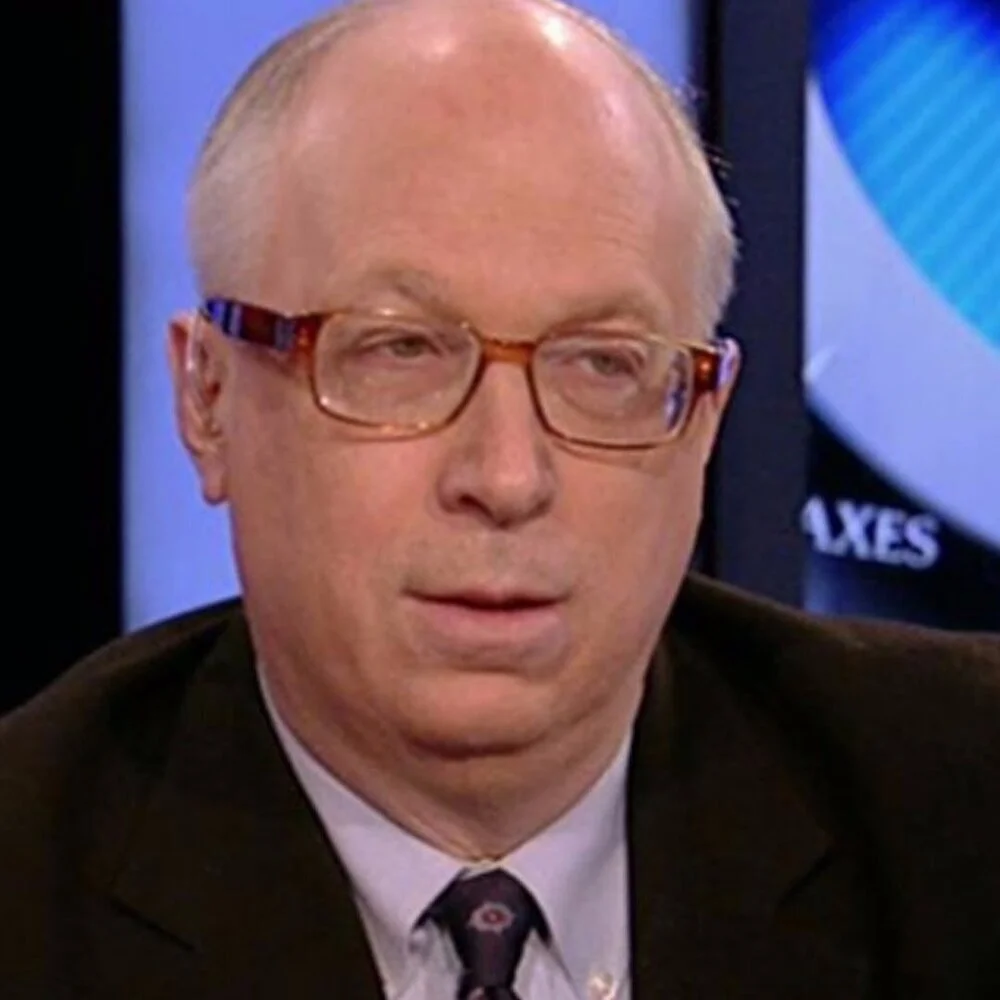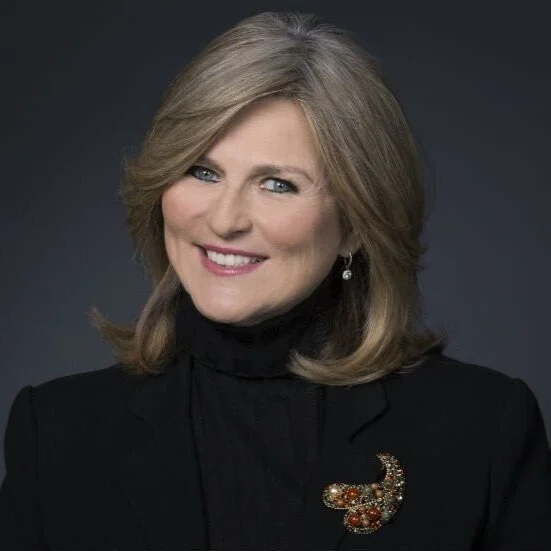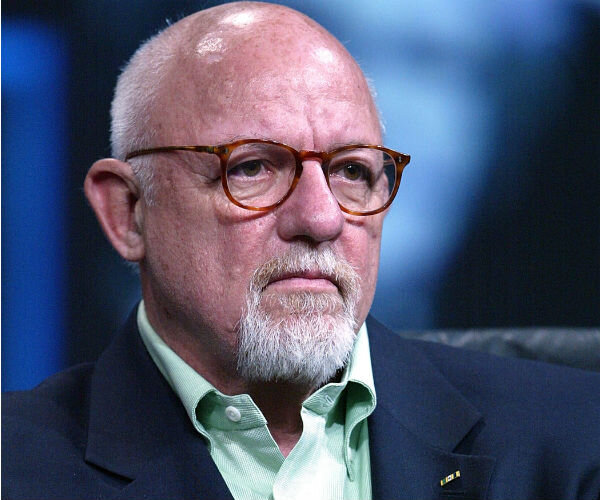
PAST EVENTS
Biden: Year One
Join The Common Good for a far-ranging and informative conversation.
About The Event
We are thrilled to have former presidential advisor David Gergen, a political analyst from the Atlantic Ron Brownstein, former GOP communications director Tara Setmayer, and Time magazine’s national political correspondent Molly Ball, join us for an important look back at Joe Biden’s first year as president, examining the successes and failures, low points and the highlights of the administration so far. Our expert panel will discuss how America has changed under President Biden, and share their thoughts on what is to come in 2022 and beyond.
What are we likely to see from the next 3 years of the Biden Presidency? What is the outlook for 2022? Join The Common Good for a smart and substantive discussion about how Biden is doing, how it fits in the historical context, and how he can do better.
WATCH:
LISTEN:
Biden's First 100 Days
Biden’s First 100 Days with Anita Dunn, Senior Advisor to the White House; David Frum, bestselling author, Senior Editor at the Atlantic, and former speechwriter for Pres. George W. Bush; and to lead the conversation, and presidential historian and member of our Honorary Advisory Board, Douglas Brinkley.
ABOUT THE EVENT
OK, Joe Biden has served for 100 days as President. He enjoys fairly high favorability ratings but can they last? What’s the Biden agenda and effect? We’ll leave that to our expert panel to decipher. The Common Good is thrilled to welcome top White House insiders Anita Dunn and David Frum - and leading the conversation is Presidential historian and TCG Honorary Advisory Board Member Douglas Brinkley, to give us the good, the bad, and the normal of President Biden’s first 100 days.
Thursday, May 6th, 2021
5:00pm-6:00pm
LISTEN:
WATCH:
David Frum is a staff writer at the Atlantic. Frum is the author of ten books, most recently TRUMPOCALYPSE: Restoring American Democracy(HarperCollins, 2020). His first book, Dead Right, won praise from William F. Buckley as “the most refreshing intellectual experience in a generation” and from Frank Rich in the New York Times as “the smartest book written from the inside about the American conservative movement.” In National Review, John Podhoretz hailed Frum’s history of the 1970s, How We Got Here, as “an audacious act of revisionism, written in a voice and style so original it deserves to be called revolutionary.” Arianna Huffington said of Frum’s 2012 novel, Patriots, “David Frum is someone who fearlessly speaks his mind, regardless of where the chips may fall, so it’s no surprise he’s able to convey so much truth in his fiction.” Frum’s memoir of his service in the George W. Bush administration, The Right Man, was a New York Times bestseller, as was his 2018 book, Trumpocracy: The Corruption of the American Republic.
David Frum has been active in Republican politics since the first Reagan campaign of 1980. From 2014 through 2017, Frum served as chairman of the board of trustees of the leading UK center-right think tank, Policy Exchange. In 2001-2002, he served as speechwriter and special assistant to President George W. Bush.
David Frum holds a BA and MA in history from Yale and a law degree from Harvard, where he served as President of the Federalist Society.
Douglas Brinkley is one of the most prominent historians in the U.S. — and CNN's presidential historian - having charted American history and significant figures for decades. He is also the official Presidential Historian for The New York Historical Society, an essayist, and a prolific and renowned biographer. He has published over three dozen highly acclaimed books, including many discerning biographies and shrewdly edited collections of presidents and presidential records. His subjects have ranged from Presidents Teddy Roosevelt, JFK, FDR, Ronald Reagan, Gerald Ford, Jimmy Carter, and Richard Nixon to the life of Rosa Parks, Hurricane Katrina, the space race and American Catholicism.
Currently, Brinkley is an esteemed professor at Rice University as the Katherine Tsanoff Brown Chair in Humanities and Professor of History, He is also a member of the Century Association, Council of Foreign Relations and the James Madison Council of the Library of Congress. His early teaching career included positions at the U.S. Naval Academy, Princeton, and Hofstra University. At Hofstra, he spearheaded an acclaimed American Odyssey course which took students across the country in a sleeper bus, visiting historical sites and meeting with cultural icons and is the subject of his travelogue The Majic Bus.
Economic Forecast for 2021
Byron Wien, Vice Chairman of Blackstone and Joe Zidle, Managing Director and the Chief Investment Strategist at Blackstone come together for an unprecedented conversation on the economy. Join us with these legends of the industry, experts of Wall Street and icons in the economic world for a special forecast on the economy and the markets given the many unusual factors - Covid, a new Administration and the continued political divide, raging unemployment, etc. What are we likely to see in the next few months and what can we hope for?
ABOUT THE EVENT
Byron Wien, Vice Chairman of Blackstone and Joe Zidle, Managing Director and the Chief Investment Strategist at Blackstone come together for an unprecedented conversation on the economy. Join us with these legends of the industry, experts of Wall Street and icons in the economic world for a special forecast on the economy and the markets given the many unusual factors - Covid, a new Administration and the continued political divide, raging unemployment, etc. What are we likely to see in the next few months and what can we hope for?
Thursday, February 11th, 2021
5pm ET
WATCH:
Byron Wien is Vice Chairman of Blackstone’s Private Wealth Solutions group where he acts as a senior adviser to both the Firm and its clients in analyzing economic, social and political trends to assess the direction of financial markets and thus help guide investment and strategic decisions.
He has been known for being "the most widely read analyst on Wall Street," "the No. 1 strategist by SmartMoney.com based on his market calls." and was named to the Smart Money Power 30 list of Wall Street’s most influential investors, thinkers, enforcers, policy makers, players and market movers. He was also named by New York Magazine as one of the sixteen most influential people in Wall Street.
He previously served as Chief Investment Strategist for Pequot Capital and before that served for 21 years as Chief (later Senior) U.S. Investment Strategist at Morgan Stanley. In 1995, Mr. Wien co-authored a book with George Soros on the legendary investor’s life and philosophy, Soros on Soros – Staying Ahead of the Curve.
Joe Zidle is a Managing Director and the Chief Investment Strategist in the Private Wealth Solutions group. He has been on CNBC and is known for his ability to spot trends in reams of data.
He previously spent nearly a decade at Bank of America Merrill Lynch, most recently serving as Head of Investment Strategy for Global Wealth Management and Deputy Director of the Research Investment Committee, where he was responsible for creating and communicating global investment strategies to the firm's private client division across all major investment disciplines. He was also with Richard Bernstein Advisors, as an independent investment advisor, where he was responsible for portfolio strategy, asset allocation, investment management and marketing to major wealth management firms and independent RIAs.
The Election That Could Break America
After Election Day, what should we expect? The list of possibilities is keeping experts on both sides of the aisle getting ready to take action. The Common Good hosts, “The Election That Could Break America” with Pulitzer prize-winning journalist Bart Gellman, and moderated by Tom Rogers. You will not want to miss Gellman dive into his most recent much-talked-about article in The Atlantic and his insights into the unprecedented scenarios that we may encounter post-election.
After Election Day, what should we expect? The list of possibilities is keeping experts on both sides of the aisle getting ready to take action. The Common Good hosts, “The Election That Could Break America” with Pulitzer prize-winning journalist Bart Gellman, and moderated by Tom Rogers. You will not want to miss Gellman dive into his most recent much-talked-about article in The Atlantic and his insights into the unprecedented scenarios that we may encounter post-election.
WATCH:
The Election that Could Break America - Recap
We thought we’d keep it light and fun for you all today; that’s why we invited Pulitzer prize- winning journalist, Bart Gellman, to The Common Good to discuss the election (yeah, that one). Media legend and Editor-at-large at Newsweek, Tom Rogers, moderated this important and all too timely discussion that centered on Bart’s recent and widely discussed article in The Atlantic, entitled, The Election that Could Break America. Tom was early (if not first) to note that Trump could very well subvert the election by staying in office no matter the outcome, and he has since written extensively about the topic in Newsweek with former Congressman Tim Wirth. Needless to say, we’re lucky to have two experts join us to discuss the election and potentially the future of our democracy.
Trump’s strategy is opacity, Bart begins ominously. Moreover, He will wield the power of incumbency to benefit his own reelection in a way that we’ve probably never seen before. While Trump will have a lot less running room if he loses by a landslide, we’re likely heading towards uncharted territory.
Gift of prophecy? No, just following the evidence; Bart asserts that no matter the outcome, Trump will not concede that he was defeated.
Both in prepared and off-the-cuff remarks, Trump has flatly said that the only way he could lose this election is if it is rigged against him.
“Our Constitution does not secure the peaceful transition of power, but rather presupposes it,” Bart Gellman.
Bart reminds us that SCOTUS didn’t determine 2000, it was Gore’s decision to ultimately concede.
SCOTUS, or at least Roberts, will be reluctant to weigh in, especially in the face of the court’s waning legitimacy. However, Bart can’t say the same for Kavannaugh at this point.
Bart suggests that if you ask most state legislators if they’d be willing to discard voters in their states, they’d probably say no. It’s hard to look in the mirror and do so; however, Trump’s genius is twofold; his manipulation of attention; and he enures people into grey areas, specifically norm-busting in a way they didn’t necessarily expect. And norms are the glue that keeps most of this together.
Ingredients for a Mess
Most states don’t allow mail-in-ballots to be processed before election day - it’s a slow process, so there will be a backlog. Florida, North Carolina, Arizona are important exceptions.
Trump has deliberately undermined trust in mail-in-ballots, creating a situation where many more Republicans will vote in person, while many more Democrats will vote by mail.
His strategy seems to be to disqualify votes that are counted “late,” locking in votes that are made day of, calling them valid.
Consequently, networks may be reluctant to determine a winner.
There’s no umpire; our elections are administered by thousands of localities. Bart soberly creates a scenario for us in which Trump attempts to blatantly steal the election: we would have mass demonstrations, with tens of millions of people. If they were peaceful, they (and democracy) would win. If they were violent, Trump could call on the troops and take advantage of the chaos.
Tom asks if there’s room for the business community to step in and while Bart acknowledges its potential efficacy, he also remarks “God help us if we are dependent on business leaders to figure out our elections for us.”
Similarly, it would be hard to imagine Republican party leaders diverging too far from Trump at any point in this process - they’re too enmeshed with his narrative.
Audience Question: What reforms can fix this?
The Electoral Count Act is a mess and in need of clarity.
We have a decentralized, underfunded election system that makes it inefficient and vulnerable to foreign threats, so money and some uniformity.
Further Reading from the Transition Integrity Project: https://assets.documentcloud.org/documents/7013152/Preventing-a-Disrupted-Presidential-Election-and.pdf
What We’re Watching this Weekend: City So Real (National Geographic/Hulu): This 5-part docu-series depicts a complex portrait of Chicago from the historic ‘19 mayor’s race to the tumultuous summer of ‘20.
Barton Gellman is a highly respected and much-honored author and journalist, a staff writer at The Atlantic, and Senior Fellow at the Century Foundation in New York. His awards include the Pulitzer Prize, an Emmy for documentary filmmaking, and the Los Angeles Times Book Prize.
His recent articles from The Atlantic have been widely praised for the cogent look at the turmoil and chaos that could erupt from the 2020 election.
Gellman is responsible for many important stories. He led The Washington Post's coverage of the U.S. National Security Agency, which was based in large measure on top-secret documents provided to him by ex-NSA contractor Edward Snowden. He published a book for Penguin Press on the rise of the surveillance-industrial state in May 2020.
Moderated by Tom Rogers, a true innovator and leader in the field of television, news and entertainment, Tom Rogers is the founder of CNBC and a CNBC contributor, as well as the founder of MSNBC, when he served as the first President of NBC cable. He is the former CEO of TiVo and is currently Chairman of Engine Media, a broad based sports, esports, and news content & distribution company.
He can also be credited for as bringing Netflix and Amazon to the TV screen. He is the former Senior Counsel to the House Telecommunications Committee where he oversaw the FCC and media industry. He is also an Editor-at-Large for Newsweek.
He has been inducted into the Cable Hall of Fame and has won an Emmy Award for contributions to the development of advanced television and advanced advertising.
Recap: Final Presidential Debate Panel
After a tumultuous first debate, the final face off will be the last, perhaps best, chance for President Trump or Vice President Biden to tell the American people why he should be elected the next president of the United States. Can we expect a serious discussion of their policy differences or another breakdown in decorum?
Whatever happens, these confrontations do shape the national conversation and the upcoming election -- and The Common Good had the extraordinary panel of political experts to analyze the impact on voters, who are already starting to head to the polls. Join ace strategist @PaulBegala and election outcome seer @RachelBitecofer. Moderated by Emmy nominated journalist @CynthiaMcFadden.
In keeping with the theme and general ethos of 2020, we had a few last-minute changes. Fortunately, the inimitable author, strategist and pollster Doug Schoen stepped in, along with the razor-sharp election whisperer, Rachel Bitecofer, as well as the brilliant, Emmy award-winning journalist, Cynthia McFadden, as moderator. And we’re lucky they did, as there’s plenty to unpack from the final (*phew*) presidential debate.
McFadden: Forget the formalities - Was there a winner?
Schoen contends that while Trump showed some much-needed discipline and restraint, ultimately Biden did what he needed to do and simply “held up.” And although the race might tighten a bit, the fundamental dynamics of the race won’t significantly change. Trump did the best he could given the facts on the ground, specifically the negative fallout of the pandemic. Ultimately, the candidates mostly spoke to their respective base, with Biden reaching out a bit to all Americans, but, notably, as a proud Democrat. With 45 million votes already, many experts are predicting record turnout for this election. Contrary to popular belief, however, Doug doesn’t see evidence that more turnout will invariably benefit Dems; and while Biden still has a clear advantage, swing states are closer than the overall popular vote.
Rachel, on the hand, said there probably wasn’t a winner of last night’s debate, just a loser - the American people. That was right before she soberly reminded us that our democracy is off the rails, that our president lies constantly and about important things, and that this enormous departure from American presidential history and norms has proven challenging for the media to cover in the face of the need for journalistic impartiality. While Trump was the consensus loser from the first debate, Rachel notes that this debate was mostly unnoteworthy. Partisans saw what they wanted to see – either a Trump win or a Biden win. Therefore, pure independents should be asked, but Rachel asserts they mostly don’t exist.
Are there still Undecided voters? (very few) What about Independent voters? (not really)
According to Doug, at this point in the race, Undecided Voters are low-information voters who feel alienated by the current system. They represent about 6% or 7% of voters.
Rachel argues that, based on her research, Independents aren’t actually independent. Actually, they almost always “lean” one way or the other (just like us, except they’re not political junkies). Moreover, Independents often are just as settled as partisans, they’re just more embarrassed about their partisanship.
Warning: Entering THE WEEDS
Rachel describes a theory that postulates: In our polarized era, Independents have an anti-status quo bias, meaning that the status quo always sucks for these voters. Therefore, they’re likely to break away from the current status quo. In this case, that would mean Independents will break in favor of the Democrats. In fact, per Rachel, the pandemic is likely to enhance the traditional 55%/44% vote for change by Independents.
Check Out Rachel’s article https://newrepublic.com/article/156402/hate-ballot
Cynthia brings up voter Trust, citing “Democracy is like Tinkerbell; once you stop believing she dies.”
Both Doug and Rachel are worried about the integrity of election and health of our democracy; however, they diverge slightly on the causes. While Doug focused on foreign interference in our election; Rachel emphasizes the institutional erosion - in the Senate, in the lack of government accountability and responsiveness, and in Trump’s open warfare on the election itself.
By the way, this warfare isn’t just Trump being Trump. Rachel also voiced concern about RNC and DOJ coordination. She paints the scenario whereby the conservative media machine declares Trump ahead on election day voting - knowing that Dems are more likely to vote by mail, Republicans in person - and then they launch a bevy of lawsuits to discredit mail-in votes that have yet to be counted.
Additional Thoughts from our Panel
Flash point? Biden’s comments on oil - specifically that we should transition away from it - could provide Trump with an opening to highlight the radical approach of The Green New Deal and Biden’s perceived equivocation on fracking.
Audience Question: Will it hurt Biden in PA?
Doug said Trump should wield that comment in a hyper-targeted way in Pennsylvania.
Rachel said those comments are more important in Texas, whose economy is more reliant on oil.
Biden has already walked it back and pivoted to ending subsidies for oil, which makes more political and practical sense. Although Trump has footage and will use it.
Switching to forecasting for Congressional Races
Rachel has the following states flipping Senate races to Dems: Arizona to Mark Kelly, Colorado to John Hickenlooper, Maine to Sarah Gideon, North Carolina probably to Cal Cunningham (very close, but early African American turnout is high).
There are tantalizing possible Tossups for Dems: Iowa to Theresa Greenfield, Alaska to Al Gross, South Carolina to Jaime Harrison, Kansas to Barbara Bollier.
But not Kentucky – White, low college-educated electorate
RE: Trump’s claim that Rs take the house – Trumps makes a lot of stuff up. No evidence, but hasn’t stopped him before. He’s just trying to keep people optimistic.
Rachel said just as there are best practices with pandemic response, there are best practices for electioneering – Base mobilizing being one of them, and usually every nominee comes out of the primary and repositions toward the center in the general election campaign.
However, Trump does things that are antithetical to winning elections:
Trump is still running a base strategy – worked last time, but it frustrates his handlers that they can’t get him to change course. He did tone down his temperament.
Final points: Rachel’s Minimal Effects Theory – Presidential campaigns don’t have a lot of room to influence voters in a hyper-partisan political landscape.
Trump has tamped down his voter erosion, but his first debate performance hurt the Senate Republicans. Trump is is seen as bad on race, empathy, police violence – not serious, empathetic voice. He’s adding to the criminality myth of black male. However, he has a bolder, better argument than Criminal Justice Reform – letting them out of prison. It’s a challenge for Trump as an incumbent to label Biden as the insider.
Rachel makes this point clear - Republicans are great at messaging, Dems struggle – they too often speak to the head, not the gut.
WATCH:
Rachel Bitecofer
A true election whisperer, Dr. Bitecofer received national acclaim for her prediction of the results of the 2018 United States midterm elections more closely than most other forecasters. She has continuously helped to predict and analyze elections and data making her one of the most sought after political scientists in the country.
She continuously appears on tv, including CNN, MSNCB, along with media outlets like NYT, NPR and the Washington Post.
Dr. Bitecofer is famous for her main thesis that modern elections are not decided by the swing vote, but rather negative partisanship, which prioritizes defeating the other side over any specific policy objective. Under her theory, shifts in voter turnout decide everything, and the "swing" mainly comes from whether voters decide to vote at all rather than deciding who to vote for.
Doug Schoen has been one of the most influential Democratic campaign consultants for over thirty years. A founding partner and principal strategist for Penn, Schoen & Berland, he is widely recognized as one of the co-inventors of overnight polling.
Schoen was named Pollster of the Year in 1996 by the American Association of Political Consultants for his contributions to the President Bill Clinton reelection campaign.
His political clients include New York City Mayor Michael Bloomberg and Indiana Governor Evan Bayh, and his corporate clients include AOL Time Warner, Procter & Gamble and AT&T. Internationally, he has worked for the heads of states of over 15 countries, including British Prime Minister Tony Blair, Italian Prime Minister Silvio Berlusconi, and three Israeli Prime Ministers.
He is the author of multiple books, most recently publishing, The End of Democracy. He is a regular contributor to the Wall Street Journal, the Washington Post and various other newspaper and online publications. He is also a Fox News Contributor, making appearances on various news programs several times a week.
Cynthia McFadden was named co-anchor of ABC News' "Nightline" in October 2005. She joined ABC News in February 1994 as the network's legal correspondent. Two years later she was named a correspondent for "PrimeTime," and was made a co-anchor of the broadcast in 2004.
McFadden took an exclusive and rare look inside the new Ku Klux Klan and covered the tragic school shooting in Newtown, Conn. She has reported extensively from Africa and India on the HIV-AIDS pandemic; from China on the environmental costs of that country's rapid economic growth; and on the illegal sale of women and young girls into sexual slavery. Her investigation into horrific human rights abuses in several Mexican mental hospitals led to a major overhaul of that government's institutions for the mentally ill.
McFadden led the first investigation by a major news organization into one of America's darkest secrets, the forced sterilization of 60,000 to 100,000 American citizens; tracked five accused murderers to their hiding places in El Salvador, where she interviewed two of them; and investigated the use of female contraceptives to treat convicted rapists.
She left ABC in 2014 and is currently the senior legal and investigative correspondent for NBC News. She has won a Peabody and an Emmy, along with countless other awards.
The First Presidential Debate Panel
Join us as we review the First Presidential debate between President Donald Trump and Vice President Joe Biden. How are their performances going to impact voters, did it sway anyone and other insights from the night. Our panelists reviewed and analyzed the highs and lows of the face-off between the Democrat and the Republican nominee's and how the debate may affect each ticket’s election fortunes.
ABOUT THE EVENT
Join us as we review the First Presidential debate between President Donald Trump and Vice President Joe Biden. How are their performances going to impact voters, did it sway anyone and other insights from the night. Our panelists reviewed and analyzed the highs and lows of the face-off between the Democrat and the Republican nominee's and how the debate may affect each ticket’s election fortunes.
WATCH:
John Avlon is an author, columnist and commentator. He is a senior political analyst and fill-in anchor at CNN, appearing on New Day every morning. From 2013 to 2018, he was the editor-in-chief and managing director of The Daily Beast, during which time the site’s traffic more than doubled to over one million readers a day while winning 17 journalism awards.
Stephen Marshall wrote “Avlon talks about politics the way ESPN anchors wrap up sports highlights.” Columnist Kathleen Parker wrote, “Americans who are fed up with the Ann Coulter/Michael Moore school of debate and are looking for someone to articulate a commonsense, middle path, may have found their voice in John Avlon.”
He has written three books, one of which was hailed by TheModerateVoice.com as “the best political book ever on American centrist voters.” Avlon is also a co-founder of No Labels – a group of Democrats, Republicans and Independents dedicated to the politics of problem-solving and making government work again.
Ed Rollins is a giant in the political world, having served as campaign consultant and advisor for numerous congressional, senatorial, gubernatorial and presidential campaigns and victories.
During the Reagan administration, he served as Assistant to the President for Political Affairs and Director of the Office of Political Affairs. He would go on to lead Reagan's re-election campaign in which he oversaw the 1984 election where Regan won 49/50 U.S. states
He was the first non-member of Congress to serve as the Chairman of the National Republican Congressional Committee and the Chief Political Advisor to the House Republican Leadership. He has gone onto manage successful campaigns for: Governor Christine Todd Whitman, Congressman George Nethercutt and Katherine Harris and currently serves as chairman of the Great America PAC.
He was inducted into the Political Consultants Hall of Fame in 201 and was was also the recipient in 2010 of the Ellis Island Medal of Honor.
Doug Sosnik served as a senior advisor to President Clinton from 1994 to 2000, playing a key role in policy, strategy, political and communications decisions in the White House; his titles included Senior Advisor for Policy and Strategy, White House Political Director and Deputy Legislative Director. Prior to joining the Clinton Administration, Sosnik was the chief of staff for Connecticut Senator Chris Dodd, and later worked with the Democratic Congressional Campaign Committee.
Mr. Sosnik currently advises elected officials, corporations, foundations, universities, non-profits and philanthropists on strategic planning and crisis management. Clients include the National Basketball Association, the Motion Picture Association of America and CNBC, as well as advised over 50 U.S. Senators and governors.
Doug co-authored a New York Times bestseller, Applebee’s America: How Successful Political, Business and Religious Leaders Connect with the New American Community.
"RNC Post-Convention Roundup" with Dan Rather, Margaret Hoover, & Alex Castellanos
Join The Common Good as we breakdown the past four day Republican National Convention. Brilliant political experts and commentators Dan Rather, Margaret Hoover, and Alex Castellanos discuss the RNC and what occurred.
Join The Common Good as we breakdown the past four day Republican National Convention. Brilliant political experts and commentators Dan Rather, Margaret Hoover, and Alex Castellanos discuss the RNC and what occurred.
"DNC 2020" with Dan Rather, Ron Brownstein, and Karen Finney
Join The Common Good as we breakdown the four day Democratic National Convention. Brilliant political experts and commentators Dan Rather, Ron Brownstein, and Karen Finney discussed the DNC and what occurred.
Join The Common Good as we breakdown the four day Democratic National Convention. Brilliant political experts and commentators Dan Rather, Ron Brownstein, and Karen Finney discussed the DNC and what occurred.
"The Coming Election Breakdown & Fixing an Already Broken Social Media" with Tom Rogers and Jessica Rogers Ecker
Media mogul and expert Tom Rogers, creator of MSNBC and CNBC, along with his millennial daughter Jessica Rogers Ecker joined The Common Good for a unique event where we discussed social media, the youth vote and the 2020 election. What impact will the youth vote play in the upcoming election, how will social media be a factor in this election and so much more.
Media mogul and expert Tom Rogers, creator of MSNBC and CNBC, along with his millennial daughter Jessica Rogers Ecker joined The Common Good for a unique event where we discussed social media, the youth vote and the 2020 election. The impact will the youth vote play in the upcoming election, how social media will be a factor in this election, and so much more.
WATCH:
A true innovator and leader in the field of television, news and entertainment, Tom Rogers is the founder of CNBC and a CNBC contributor, as well as the founder of MSNBC, when he served as the first President of NBC cable. He is the former CEO of TiVo and is currently Chairman of Engine Media, a broad based sports, esports, and news content & distribution company. He can also be credited for as bringing Netflix and Amazon to the TV screen. He is the former Senior Counsel to the House Telecommunications Committee where he oversaw the FCC and media industry. He is also an Editor-at-Large for Newsweek.
He has been inducted into the Cable Hall of Fame and has won an Emmy Award for contributions to the development of advanced television and advanced advertising.
Jessica Ecker is a graduate of Columbia University and Columbia Law School. After law school, she clerked for Hon. Michael M. Baylson of the United States District Court for the Eastern District of Pennsylvania, and then Hon. Cheryl Ann Krause of the United States Court of Appeals for the Third Circuit. She is currently a litigation associate at Sullivan & Cromwell in New York City.
Debate Watch Party
With so many Democratic presidential hopefuls, the first 2020 debate was held over two nights - Wednesday, June 26 and Thursday, 27. The Common Good was grateful to Joseph Fichera, CEO of Saber Partners, LLC, for the opportunity to host a viewing party for the second night…
With so many Democratic presidential hopefuls, the first 2020 debate was held over two nights - Wednesday, June 26 and Thursday, 27. The Common Good was grateful to Joseph Fichera, CEO of Saber Partners, LLC, for the opportunity to host a viewing party for the second night.
These were incredible evenings with the most diverse field of candidates to ever take the stage, and TCG members from across the political spectrum came together to share in an engaging and illuminating viewing. It was a fun and energetic night of lively debate, collaboration, and listening, and we cannot wait for the next one and hope to see you all there!
NIGHT 2 – THURSDAY JUNE 27
Sen. Kamala Harris, fmr. Vice President Joe Biden, Mayor Pete Buttigieg, Sen. Bernie Sanders, Sen. Kirsten Gillibrand, Gov. John Hickenlooper, author Marianne Williamson, Rep. Eric Swalwell, entrepreneur Andrew Yang, and Sen. Michael Bennet.
Interested in attending future events?
The Common Good has been hosting events since 2006 that cover important issues of today, highlighting speakers who have worked to bolster our democracy and can provide great insight on the issues that matter.
